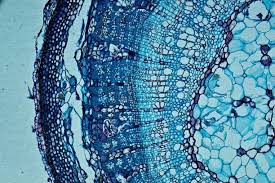T cell receptor-engineered T cell (TCR-T) therapy is rapidly emerging as a promising frontier in cancer treatment. By reprogramming a patient’s own T cells to recognize specific antigens on tumor cells, TCR-T therapies offer a highly personalized approach to targeting and eliminating cancer. Unlike chimeric antigen receptor (CAR) T cell therapies, which predominantly target cell-surface antigens, TCR-T cells can recognize intracellular proteins presented on major histocompatibility complex (MHC) molecules. This expanded targeting capacity has the potential to treat a broader range of cancers, including solid tumors and hematologic malignancies.

Recent advancements in TCR-T therapy underscore both the promise and complexity of these treatments. From Lion TCR’s FDA-cleared Phase II trial in HBV-related hepatocellular carcinoma to innovative platforms developed by TScan Therapeutics and Medigene’s expansion of its patent portfolio with the JOVI enrichment technology, the field is witnessing rapid progress on multiple fronts. In this post, we explore key developments in TCR-T cell therapy, discuss the science behind these breakthroughs, and examine the challenges and future directions for this transformative approach.
A New Paradigm in Cancer Immunotherapy
Adoptive T cell therapies have revolutionized cancer treatment by harnessing the patient’s immune system to attack tumors. TCR-T cell therapy, in particular, offers distinct advantages. By engineering T cells to express high-affinity T cell receptors (TCRs) that recognize tumor-specific peptides, clinicians can achieve targeted tumor cell killing even when the antigens are derived from intracellular proteins. This capability is critical for treating cancers that do not express readily targetable surface markers.
The process involves isolating T cells from a patient, genetically modifying them to express a desired TCR, expanding the modified cells in vitro, and finally infusing them back into the patient. These engineered T cells can then seek out and destroy tumor cells that display the target antigen. Given the heterogeneity of tumors and the complexity of the tumor microenvironment (TME), this therapy has the potential to overcome resistance mechanisms that limit the efficacy of conventional treatments.
Lion TCR: Pioneering TCR-T Therapy in HBV-Related Liver Cancer
One of the most compelling examples of TCR-T therapy in action is the work being done by Lion TCR. The company recently received FDA clearance to begin a Phase II clinical trial of its TCR-T cell therapy in patients with HBV-related hepatocellular carcinoma (HCC). This approach leverages the adoptive transfer and supplementation of autologous HBV-specific TCR-T cells with the goal of restoring the HBV-specific T-cell pool in patients.
In previous clinical studies, patients with HBV-related HCC treated under the Liocyx-M004 protocol experienced a median survival of 33.1 months—a notable achievement in a challenging therapeutic area. The underlying concept is to use TCR-T cells not only to target liver cancer cells but also to eliminate liver cells infected with HBV, thereby addressing two interlinked pathologies simultaneously.
The scientific rationale behind this strategy is straightforward yet elegant. By replenishing a patient’s depleted pool of HBV-specific T cells, the therapy enhances the body’s natural immune response against both the viral infection and the cancer cells driven by that infection. This dual-targeting mechanism is particularly critical in HBV-related HCC, where chronic viral infection plays a central role in oncogenesis.
However, the path to clinical success is not without challenges. TCR-T therapies must overcome issues related to T cell persistence, tumor microenvironment immunosuppression, and the risk of off-target effects. To mitigate these risks, Lion TCR’s approach includes rigorous preclinical testing and careful patient selection to ensure that the benefits of treatment outweigh the potential adverse effects.
TScan Therapeutics: Customizing TCR-T Therapies for Diverse Cancers
While Lion TCR is focused on HBV-related liver cancer, other companies are expanding the scope of TCR-T therapies to address a wider array of malignancies. TScan Therapeutics, for example, is at the forefront of developing TCR-T therapies for both hematologic malignancies and solid tumors. The company’s clinical-stage pipeline is supported by its proprietary ImmunoBank—a repository of therapeutic TCRs that target diverse antigens across multiple human leukocyte antigen (HLA) types.
TScan’s strategy is innovative and versatile. Their multiplexed approach involves creating a bank of approved TCRs and then mixing and matching them to formulate customized therapies for individual patients. This “plug-and-play” model allows for rapid adaptation to the unique antigenic landscape of each tumor, effectively addressing the issue of tumor heterogeneity—a major obstacle in treating solid tumors.
In its ALLOHA™ Phase 1 heme trial, TScan Therapeutics is evaluating its TCR-T therapy candidates for patients with hematologic malignancies to prevent relapse following allogeneic hematopoietic cell transplantation. Additionally, the company is conducting a Phase 1 trial, dubbed PLEXI-TTM, for solid tumors. These trials represent a significant step forward in demonstrating the safety and efficacy of TCR-T therapies across different cancer types.
TScan’s approach not only exemplifies the potential of TCR-T cell therapy but also highlights the importance of customized immunotherapy. By tailoring the T cell receptor repertoire to the individual patient’s tumor profile, TScan aims to achieve a higher rate of clinical responses and durable remissions.
Intellectual Property and Technological Advancements: The Role of Medigene
A robust intellectual property (IP) portfolio is essential for the success of any advanced therapeutic platform. Medigene AG is a notable player in the TCR-T cell therapy space that has been expanding its IP portfolio with key patents, such as the recent U.S. patent grant for its JOVI enrichment technology. According to Medigene’s Chief Scientific Officer, Dolores Schendel, this new patent complements their European patent and reinforces their end-to-end (E2E) platform for TCR-guided therapies.
Medigene’s JOVI technology focuses on generating T cell receptors that are not only highly sensitive and specific but also safe for clinical application. Their platform is designed to support a range of TCR-guided therapies, including off-the-shelf TCR-guided T cell engager (TCR-TCE) therapies and TCR-naked killer cell (TCR-NK) therapies. These innovations aim to overcome common challenges in T cell engineering, such as ensuring sufficient affinity without triggering off-target effects.
The advancement of IP in the TCR-T cell therapy field is critical for driving clinical and commercial success. It not only provides companies like Medigene with a competitive edge but also stimulates further research and development across the sector. As more patents are granted and proprietary technologies refined, the overall quality and efficacy of TCR-T therapies are expected to improve, paving the way for broader clinical adoption.
Addressing the Tumor Microenvironment and Overcoming Resistance
One of the significant challenges in TCR-T cell therapy is the immunosuppressive tumor microenvironment (TME). The TME can inhibit the function and persistence of engineered T cells, reducing the overall effectiveness of the therapy. Researchers are actively exploring strategies to modify the TME to support T cell activity.

For instance, some approaches involve combining TCR-T cell therapy with checkpoint inhibitors—drugs that block proteins used by cancer cells to evade immune detection. Other strategies include engineering T cells to express cytokines that can modulate the TME or using combination therapies that target multiple pathways simultaneously. These innovative approaches are crucial for enhancing the therapeutic potential of TCR-T cells, especially in solid tumors where the TME is particularly challenging.
Clinical data from early-phase trials, such as those conducted by Lion TCR and TScan Therapeutics, provide valuable insights into how these therapies can be optimized. Improved patient outcomes, such as increased median survival and significant gains in visual acuity in different indications, highlight the potential of TCR-T cell therapies when the TME is effectively managed. Continued research in this area is essential for addressing resistance mechanisms and ensuring long-term remission.
Regulatory Considerations and the Path to Market
The path from bench to bedside for TCR-T cell therapies is complex, involving rigorous regulatory scrutiny to ensure patient safety and treatment efficacy. The FDA plays a pivotal role in this process, reviewing extensive clinical data from multiple phases of trials before granting approval.
For example, Lion TCR’s clearance to begin a Phase II trial in HBV-related hepatocellular carcinoma marks a significant regulatory milestone. This clearance reflects the FDA’s confidence in the preliminary safety and efficacy data from earlier-phase studies. Similarly, companies like TScan Therapeutics are navigating the regulatory landscape by enrolling patients in Phase 1 trials for both hematologic and solid tumors.
Regulatory agencies are increasingly supportive of innovative therapies that address unmet medical needs. Accelerated approval pathways, such as the Regenerative Medicine Advanced Therapy (RMAT) designation, offer opportunities for therapies that demonstrate significant clinical promise. However, navigating these regulatory pathways requires extensive documentation, robust clinical trial data, and comprehensive risk management strategies. Companies must also engage in post-marketing surveillance to monitor long-term safety and efficacy, ensuring that any adverse effects are promptly addressed.
The evolving regulatory framework for TCR-T cell therapies reflects the balance between innovation and patient safety. As more therapies reach advanced clinical stages, the lessons learned from early trials will inform future regulatory decisions and help streamline the approval process for these life-changing treatments.
Future Directions and Emerging Trends in TCR-T Cell Therapy
Looking ahead, the future of TCR-T cell therapy is filled with promise, driven by continuous technological advancements, expanding clinical applications, and strategic industry collaborations.
One emerging trend is the integration of advanced bioinformatics and artificial intelligence (AI) in T cell receptor discovery and optimization. AI algorithms can analyze large datasets from genomic and proteomic studies to identify novel TCR sequences with high specificity and affinity for tumor antigens. This data-driven approach accelerates the development of next-generation TCR-T therapies and enhances their clinical efficacy.
Additionally, the development of multiplexed and customized TCR-T cell therapies is expected to address tumor heterogeneity more effectively. By creating banks of therapeutic TCRs that can be tailored to individual patients’ tumor profiles, companies like TScan Therapeutics are paving the way for personalized immunotherapy. This customization is critical in achieving durable responses, particularly in patients with diverse genetic backgrounds and complex tumor antigen landscapes.
Another promising area is the exploration of combination therapies. Integrating TCR-T cell therapy with other immunotherapies—such as checkpoint inhibitors, cytokine therapies, or even traditional chemotherapy—could enhance therapeutic outcomes by tackling multiple aspects of tumor biology simultaneously. Clinical trials that investigate these combination approaches are already underway, and early results are encouraging.
The expansion of intellectual property portfolios, as demonstrated by Medigene AG’s recent patent grant for its JOVI technology, will also play a crucial role in shaping the competitive landscape. A strong IP portfolio not only secures a company’s market position but also fosters innovation by protecting novel methodologies and encouraging further research.
Furthermore, as the field matures, the focus is shifting toward improving the scalability and manufacturability of TCR-T cell therapies. Advances in bioprocessing techniques and automation will be key to ensuring that these therapies can be produced at a commercial scale without compromising quality. The development of standardized protocols for cell expansion, genetic modification, and quality control will be critical for reducing production costs and enabling widespread clinical adoption.
Conclusion
TCR-T cell therapy represents a transformative approach in the fight against cancer, harnessing the power of the immune system to target and destroy tumor cells with unprecedented precision. From Lion TCR’s innovative treatment for HBV-related liver cancer to TScan Therapeutics’ customizable approach for a range of malignancies, the field is rapidly evolving. Intellectual property advancements and strategic collaborations are driving further innovation, while regulatory progress ensures that these therapies meet stringent safety and efficacy standards.
The challenges are significant—from managing the immunosuppressive tumor microenvironment to scaling up production and navigating complex regulatory pathways. Yet, the potential benefits are enormous. TCR-T cell therapies offer a new level of precision in cancer treatment, expanding therapeutic options for patients who have exhausted conventional treatments.
Looking forward, the integration of AI and advanced bioinformatics into TCR discovery and optimization, coupled with combination therapies and improved manufacturing techniques, will likely redefine the future of cancer immunotherapy. As companies continue to innovate and clinical trials yield promising results, TCR-T cell therapy is poised to become a cornerstone of personalized medicine and a beacon of hope for patients worldwide.
Florida and other innovation hubs are leading the charge, driven by a collaborative ecosystem that bridges academia, industry, and regulatory bodies. The future of TCR-T cell therapy is bright, with every breakthrough bringing us closer to a new era of precision immunotherapy—a future where the immune system is empowered to eradicate cancer, and patients enjoy longer, healthier lives.
TCR-T cell therapy is redefining the boundaries of cancer treatment through precision immunotherapy. By engineering T cells to recognize and attack tumor cells, this innovative approach offers new hope for patients with previously untreatable cancers. As research and clinical trials continue to advance, and as the ecosystem of academic institutions, biotechnology companies, and regulatory agencies strengthens, TCR-T cell therapy will play an increasingly vital role in the era of personalized medicine and targeted cancer treatment.
